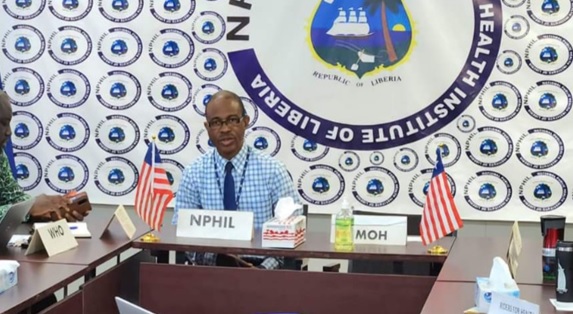As Liberia confronts the resurgence of Mpox, the confirmation of three new cases by the National Public Health Institute of Liberia (NPHIL) is a sobering reminder that the country remains in the midst of a serious public health crisis. The cases, identified in Lofa, Sinoe, and River Gee Counties, bring the total number of confirmed infections to five since the World Health Organization (WHO) and Africa Centers for Disease Control and Prevention (Africa CDC) declared Mpox a Public Health Emergency of International Concern just three weeks ago.
This rise in cases is a signal that the threat is far from contained. While the NPHIL, in collaboration with the Ministry of Health (MOH) and international partners, has activated the National Incident Management System (IMS) to respond proactively, the fight against Mpox is still ongoing. It requires collective action from every citizen and community to prevent further transmission of this highly contagious virus.
Mpox spreads not only through direct contact with an infected person or animal but also via contaminated materials such as bedding or clothing. This highlights the need for heightened vigilance regarding personal hygiene and protective practices. Liberians are urged to regularly wash or sanitize their hands, avoid contact with individuals showing symptoms, and steer clear of animals that could be carriers. Additionally, safe sexual practices must be observed, as intimate contact is another route of transmission.
Liberians cannot afford complacency. Communities must remain alert and immediately report any suspected Mpox cases to the nearest health facility. Early detection and timely intervention are key to stopping the virus from spreading further and becoming a full-blown public health catastrophe.
NPHIL’s rapid response through the activation of the IMS, along with coordinated efforts from international partners, demonstrates that health authorities are fully committed to addressing the outbreak. However, the containment of Mpox cannot be the sole responsibility of health officials. It requires an informed, disciplined response from the public. Every Liberian has a role to play in this effort.
It is crucial that the public remain calm, but also cautious. Adhering to the preventive guidelines provided by NPHIL is not just about protecting oneself, but also about safeguarding families, friends, and communities. By taking these precautions seriously, Liberia can curtail the spread of Mpox and avoid the tragic outcomes seen in past outbreaks.
Let us all be proactive, report suspected cases, and stay united in the fight against Mpox. In times like these, our greatest asset is our shared responsibility to protect one another.







